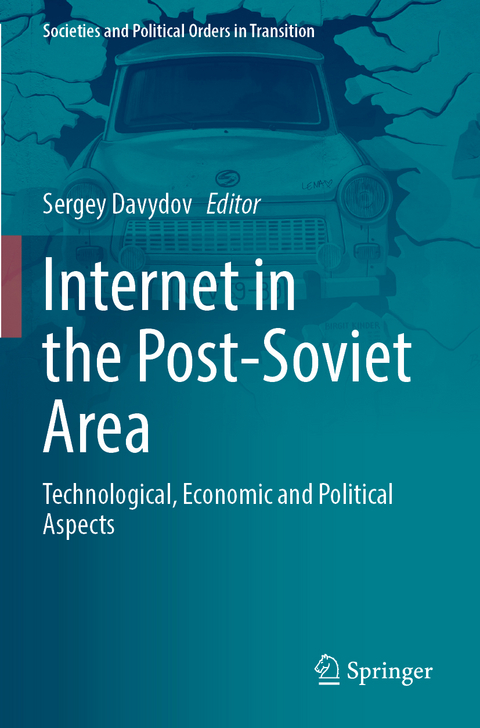
Internet in the Post-Soviet Area
Springer International Publishing (Verlag)
978-3-031-32509-0 (ISBN)
This book offers a comparative perspective on the technological, economic, and political aspects of Internet development in the post-Soviet countries. In doing so, international experts analyze similarities and differences in various countries throughout the chapters.
The volume consists of two parts. The chapters of the first part examine the post-Soviet area as a whole. The second part includes specific case studies on the development of the Internet, either in individual countries or in groups of countries. Countries analyzed are Estonia, Ukraine, Russia as well as three Central Asian countries: Kazakhstan, Uzbekistan and Tajikistan. Topics covered in the volume include, but are not limited to measurement, dynamics, and structure of each national Internet audience; the history of the Internet in the post-Soviet countries; development of infrastructure; Internet regulation and institutional aspects; online markets such as telecommunications, online advertising, e-commerce, and digital content; social and cultural aspects; as well as the transformation of the national media systems.
This book is a must-read for students, researchers, and scholars of political science and economics, as well as policymakers and practitioners interested in a better understanding of Internet development in the post-Soviet area.
Sergey Davydov is an associate professor at the Department of Sociology and senior researcher at the International Laboratory for Social Integration Research of the HSE University, Moscow (Russia). His research focuses on media sociology and public opinion, as well as the methodologies of social studies. Between 2005 and 2011, he was the head of Media Research at the International Institute of Marketing and Social Research "GfK-Rus." Davydov is the author of various academic publications and the head of several research projects. He is an editor on the book "Internet in Russia: A Study of the Runet and Its Impact on Social Life", published in "Societies and Political Orders in Transition" series by Springer in 2020. Further, he is a member of several international academic and industrial associations and societies.
1. Introduction.- PART 1. CHARACTERIZING THE POST-SOVIET INTERNET.- 2.Representation of the Post-Soviet Countries in the Global Online Information Space in 2020-2021: Frequency of Mention, Media Dynamics, Mood Characteristics.- 3. Legal Regulation of the Internet around Post-Soviet Space.- 4. Cancel Culture and Novaya Etika in Russian Public Discourse.- 5. Online coping strategies during the COVID-19 pandemic: the case of Izoizolyacia flash mob.- PART 2. POST-SOVIET COUNTRIES: SPECIAL FOCUS.- 6. Developing an Advanced Digital Society: An Estonian Case Study.- 7. Uanet through Socio-Political Perspectives.- 8. Media Generations of the Russians in the Digital Media Environment: Opportunities for Intergenerational Communication.- 9. Elite Students in Kazakhstan: Complexities of the Internet and the International Arena.- 10. Measuring Media Literacy Level: A Case of Central Asia
| Erscheinungsdatum | 13.07.2024 |
|---|---|
| Reihe/Serie | Societies and Political Orders in Transition |
| Zusatzinfo | VI, 225 p. 34 illus., 26 illus. in color. |
| Verlagsort | Cham |
| Sprache | englisch |
| Maße | 155 x 235 mm |
| Themenwelt | Sozialwissenschaften ► Politik / Verwaltung ► Vergleichende Politikwissenschaften |
| Schlagworte | Central Asia • Digital Content • Digital Media • Eastern Europe • E-Commerce • Freedom House survey • freedom of press • Internet audience • Internet-dependent markets • Internet development • Internet History • Internet Policy • Internet Regulation • Media systems • media transformation • Online Advertising • Online Markets • runet • Social and cultural aspects of the Internet • telecommunications |
| ISBN-10 | 3-031-32509-5 / 3031325095 |
| ISBN-13 | 978-3-031-32509-0 / 9783031325090 |
| Zustand | Neuware |
| Haben Sie eine Frage zum Produkt? |
aus dem Bereich


